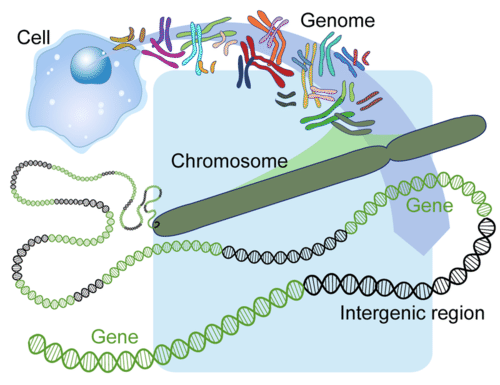Ethical, Legal, and Social Issues in Biotech (ELSI) Study Guide
Introduction:
Science has developed a lot. Technology advancement in biology has been assisting science in peeping inside the body of a living organism for the past many years. Biotechnology has made several things easily accessible for scientists that have become a matter of concern.
Some steps that have been taken after the advancement of biotechnology for mankind have proved to be dangerous to other living beings. Those steps raise so many questions in society related to various issues. We are going to talk about those issues, simply saying ELSI. Let’s understand the definition of ELSI.
What is ELSI?
Biotechnology has facilitated scientists to get information on human genetics. What if they disclose all the information to health insurance companies? Those companies can use this information for their benefit. These practices aren’t ethical at all. ELSI talks about these issues.
ELSI is an abbreviation for Ethical, Legal, and Social Issues. Here, we will discuss ethical, legal, and social issues due to biotechnology. This issue is of great concern especially after the development of the human genome project.
What is the human genome project?
This project has a motive to get gene information of human beings for the development of mankind. However, this project can raise ethical, social, and legal issues because of technological advancement for the research on DNA and genomes.
What are the issues involved with biotechnology?Biotechnology works for the development of human beings. However, its application has raised several types of biotechnology issues for society, as follows:
-
Transgenesis: The transfer of transgenes from one organism to another is a matter of concern for humans. This process has the potential to change the phenotype of an organism. For example, transgenic crops are produced but the psossible consequences are ignored.
-
Agriculture: There are safety concerns over gene modification in crops. Development of herbicide resistance could lead to the growth of more tolerant weeds as a result of cross pollination with correlated species. People still avoid using genetically modified crops and prefer normally produced crops. It’s a part of the ethical issues in biotechnology.
-
Healthcare: In health care, the point of discussion arises over testing of genetic diseases. A hospital can have all the gene information. They can easily get all the information of an individual such as the illness he is going to suffer in the future. This information can be given to insurance companies, and as a result, the individual’s insurance may get terminated. Clinical trials on humans and animals for making new vaccines or medicines are also responsible for creating ethical issues.
-
Harm to the environment: This is the biggest issue that arises due to biotechnology. Scientists try to predict the ecosystem, and they try to change it as per the convenience of humankind. This could result in ecological imbalance of the whole ecosystem.
-
Bioterrorism: It is a very big threat for mankind nowadays. Gene information can come into use as a weapon if it falls into the wrong hands. Terrorists can make deadly viruses or toxins with impossible cures.
-
Laboratory safety: Projects with biotechnology can be harmful to those who work in such laboratories. No one can predict the consequences of an experiment.
Concerns of biotechnology
The application of biotechnology has created several ethical, legal, and social concerns. The following are some of the examples:
- Who is the owner of the organisms that are genetically modified, i.e., bacteria? As the inventions are generally patented, are these organisms to be patented?
- Is it safe to eat food that is genetically modified? Could they have unanticipated negative impacts on those who eat them?
- Can genetically modified crops potentially harm the environment? Could they be harmful to other creatures or perhaps the entire ecosystems?
- Who has access to the genetic information of a person? What precautions are taken to ensure that the information remains confidential?
- What steps can be taken to protect children from mutations? Is it right to terminate a pregnancy if the fetus carries a gene mutation that might lead to a serious genetic disorder?
The potential problems of biotechnology are beyond the addressing capacity. The potential complexities of such issues can be better understood with the following example:
A maize variety has been developed now; the gene in this maize is encoded with natural insecticides. Now, as we analyze the good side of this modification, maize will not be eaten by insects, and humans are now left with more maize for consumption. Moreover, the need to treat the maize crop with chemicals to protect them from insects has been eliminated. This is good for humans as they are now safe from potentially harmful chemicals.
As we analyze the negative impact, this transgenic maize is likely to cross-pollinate with neighboring milkweed plants. This cross-pollination will harm the monarch butterfly caterpillars who will feed on the new milkweed. The major concern of scientists is that monarch butterflies, and some other species may become endangered.
Undoubtedly, biotechnology is beneficial, but it can be difficult to identify the cons of biotechnology applications.
Conclusion:
- Biotechnology can be useful for humans, but it has unforeseen consequences.
- Several complicated Ethical, Legal and Social Issues have arisen due to biotechnology. These may remain controversial for several years.
FAQs:
1. What are some ethical, social, and legal issues associated with biotechnology?
All the issues related to the use of gene information of organisms are associated with biotechnology. Some Of them are as follows:
- Genetically modified crops in agriculture
- Harm to the environment
- Bioterrorism
- Healthcare issues
2. What are the three ethical, social, or legal issues created by genetic engineering and biotechnology?
- Privacy of the genetic information of organisms
- Upgradation in the medical field related to genetic technology
- Issues related to DNA research
3. What are the ethics and controversies of biotechnology?
Controversies related to biotechnology arise mainly because it comprises genetic information, which can be harmful to organisms in many ways.
4. What are social issues in biotechnology?
Social issues in biotechnology are as follows:
- Harm to the environment
- Bioterrorism
- Laboratory safety
5. What are some ethical issues in agricultural biotechnology?
Ethical issues in biotechnology are mainly:
- Genetic modification of crops
- Transfer of transgenes
6. What are the possible controversial issues that are related to agricultural biotechnology?
Some of the possible controversial issues related to agricultural biotechnology are producing genetically modified crops and the transfer of transgenes.
We hope you enjoyed studying this lesson and learned something cool about the Ethical, Legal, and Social Issues in Biotech (ELSI)! Join our Discord community to get any questions you may have answered and to engage with other students just like you! Don’t forget to download our App to experience our fun, VR classrooms – we promise, it makes studying much more fun! 😎
Sources:
- Ethical, Legal, and Social Issues in Biotechnology (ELSI). https://flexbooks.ck12.org/cbook/ck-12-biology-flexbook-2.0/section/3.15/primary/lesson/ethical-legal-and-social-issues-of-biotechnology-bio/ Accessed 11 Dec, 2021.
- Biotechnology: Ethical Issues. https://www.encyclopedia.com/medicine/medical-magazines/biotechnology-ethical-issues Accessed 11 Dec, 2021.


